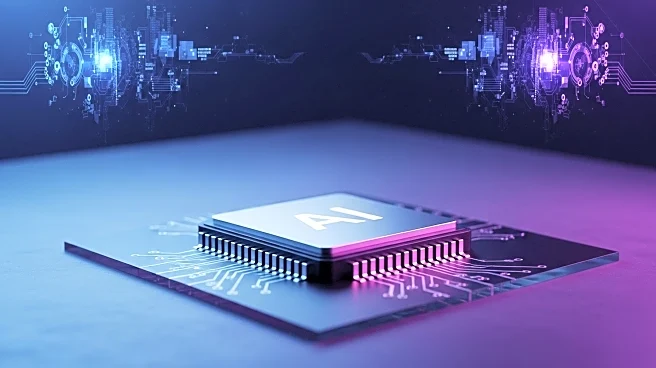What's Happening?
The concept of prompt engineering, once considered a vital skill for the future of work, is rapidly becoming obsolete as AI systems evolve. David Borowski, a senior partner at consulting firm West Monroe, highlights that HR departments are moving away from training employees to craft AI prompts and are instead focusing on broader workforce strategies. This shift is driven by advancements in AI technology that now understand natural language and context, reducing the need for precise prompt crafting. Borowski emphasizes the importance of organization-wide adaptability and cultural change over technical expertise, suggesting that HR leaders should focus on roles and responsibilities that support essential capabilities in an AI-driven world.
Why It's Important?
The transition from prompt engineering to strategic AI transformation reflects the rapid pace of technological change and its impact on workforce management. Companies that adapt to this shift stand to gain a competitive edge by leveraging AI strategically across their operations. This change necessitates a reevaluation of talent strategies, emphasizing human judgment and critical thinking alongside AI capabilities. Organizations that successfully integrate AI into their workforce can enhance decision-making processes and drive meaningful business outcomes. The focus on strategic transformation rather than technical skills highlights the need for HR leaders to cultivate a workforce that can thrive in an AI-centric environment.
What's Next?
HR leaders are encouraged to rethink their talent strategies by considering the design and composition of their workforce. This involves breaking down silos between HR and IT departments to ensure tighter integration and collaboration. Companies should focus on recruiting candidates who demonstrate adaptability and results, rather than just technical AI skills. Borowski suggests adopting 'ride-along' learning, which emphasizes observation and hands-on application, to complement formal training programs. Organizations must prioritize building experienced human beings who can be augmented by AI, rather than replacing workers with technology, to ensure long-term growth and a robust leadership pipeline.
Beyond the Headlines
The shift away from prompt engineering underscores the broader implications of AI's integration into the workforce. It challenges traditional notions of skill development and highlights the importance of organizational adaptability in the face of rapid technological change. This transformation requires a cultural shift within companies, where critical thinking and human judgment are valued alongside AI capabilities. The emphasis on strategic transformation rather than technical proficiency suggests a new competitive reality where success is defined by an organization's ability to leverage AI effectively across all domains.










